June 21, 2025 | 02:44 GMT +7
June 21, 2025 | 02:44 GMT +7
Hotline: 0913.378.918
June 21, 2025 | 02:44 GMT +7
Hotline: 0913.378.918
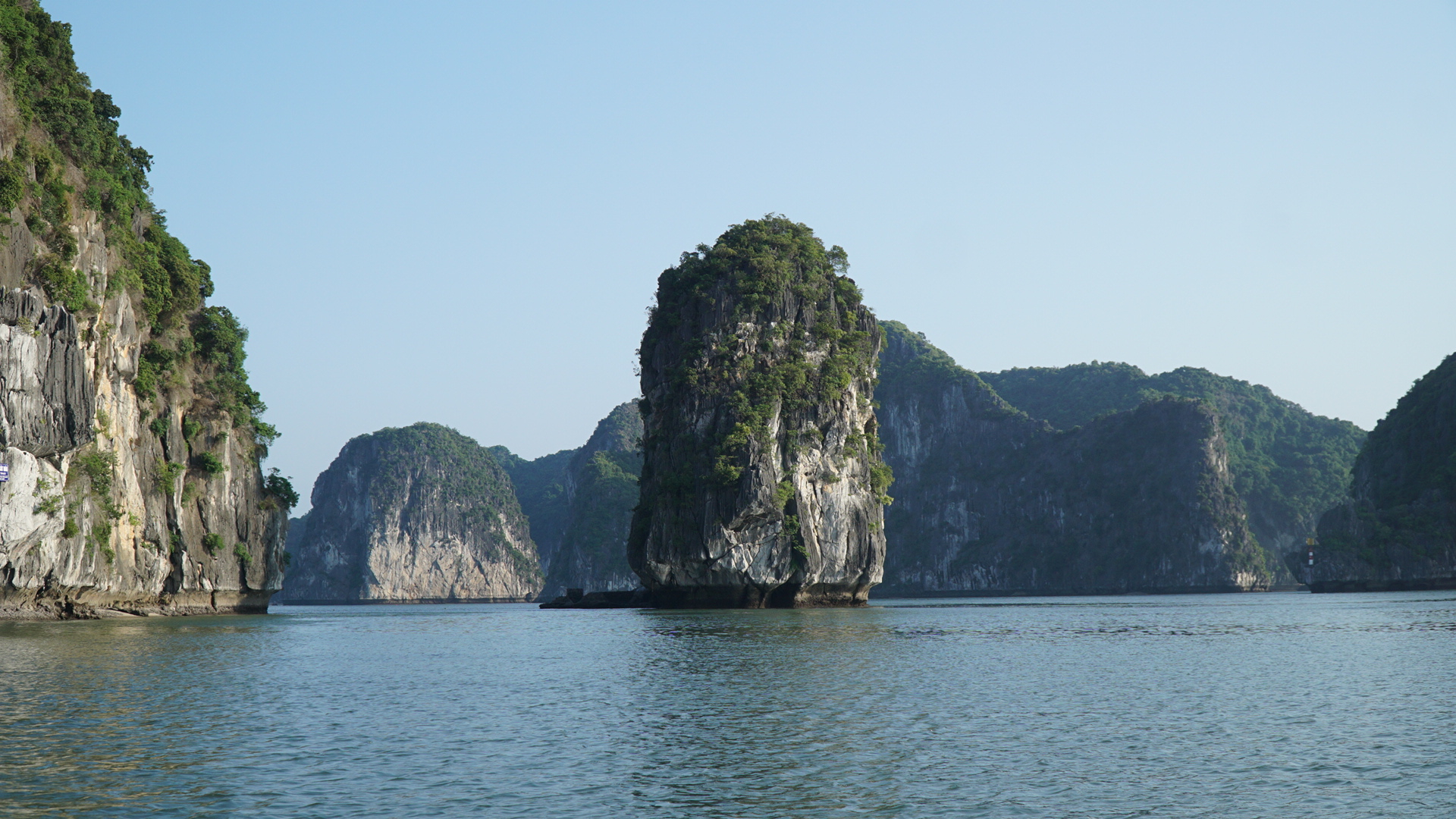
Lan Ha Bay located in Cat Ba Archipelago. Photo: Dinh Muoi.
At 9:00 PM on September 16 (Vietnam time) in the capital city of Riyadh, Saudi Arabia, the UNESCO World Heritage Committee officially recognized Ha Long Bay - Cat Ba Archipelago as a World Natural Heritage.
Ha Long Bay is located in Quang Ninh province, and Cat Ba Archipelago is located in Hai Phong city. They are situated in the northeast of Vietnam, approximately 165 kilometers from Hanoi city, and often referred to as the "jewel of the Gulf of Tonkin."
The sites have held multiple significant national and international titles, including Special National Monument Ha Long Bay; Special National Monument Cat Ba Archipelago; Cat Ba National Park; Lan Ha Bay as one of the most beautiful bays in the world; marine conservation area; Cat Ba Archipelago Biosphere Reserve; and Ha Long Bay as a World Natural Heritage (in 1994 and 2000).
Ha Long Bay - Cat Ba Archipelago has been evaluated as an exceptionally unique natural beauty with outstanding global value by the UNESCO. It represents the end of a long evolutionary process of karst landforms. Additionally, the sites are home to several rare and precious animal species, embodying seven interconnected ecosystems.
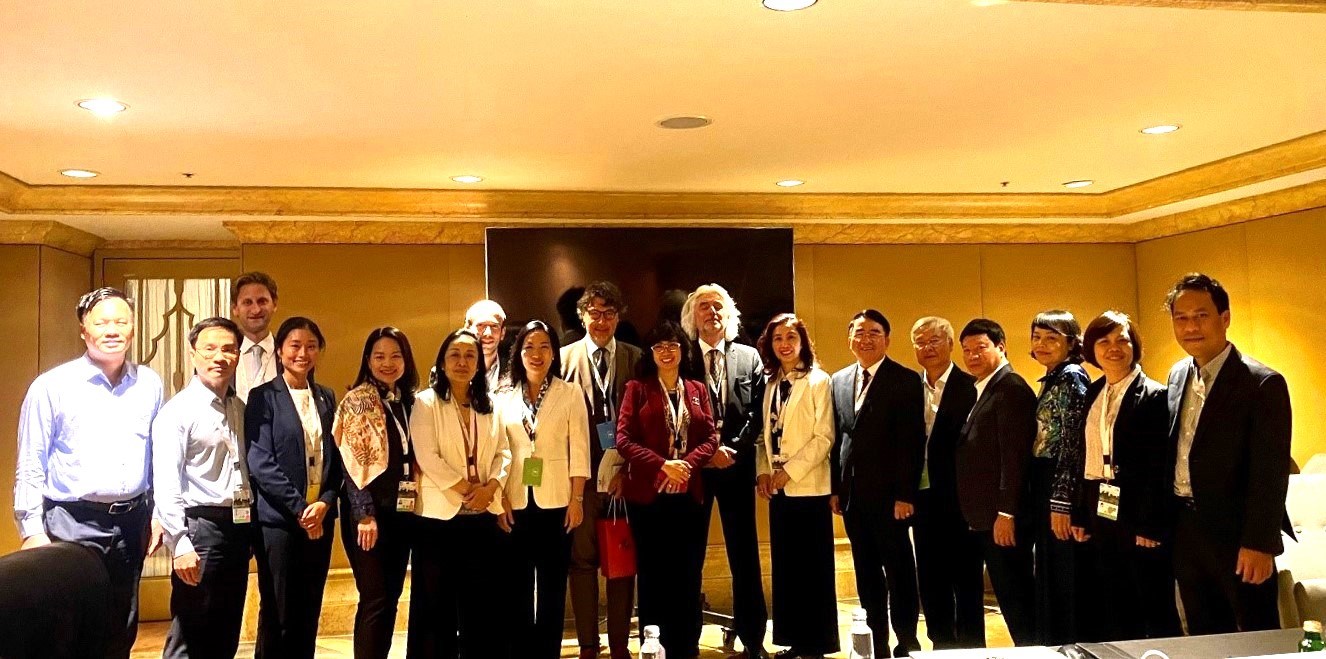
The Vietnamese delegation who participated in the 45th session of UNESCO held in the capital city of Riyadh, the Kingdom of Saudi Arabia.
Home to a convergence of mountains, forests, and the sea, Ha Long Bay - Cat Ba Archipelago is characterized by a high level of biodiversity, featuring seven interconnected ecosystems, including tropical, subtropical, and adjacent temperate ecosystems, which consist of the primary tropical rainforest ecosystem, cave ecosystem, mangrove ecosystem, intertidal ecosystem, coral reef ecosystem, soft-bottom ecosystem, and brackish water ecosystem. These ecosystems represent ongoing evolutionary and developmental processes, demonstrated through the diversity of terrestrial and marine species.
Furthermore, the sites boast the largest offshore forest in Vietnam, covering an area of over 17,000 hectares. The forest area also features diverse ecosystems which serve as a natural habitat for 4,910 species of terrestrial and marine flora and fauna, including 198 species listed in the IUCN Red List and 51 endemic species.
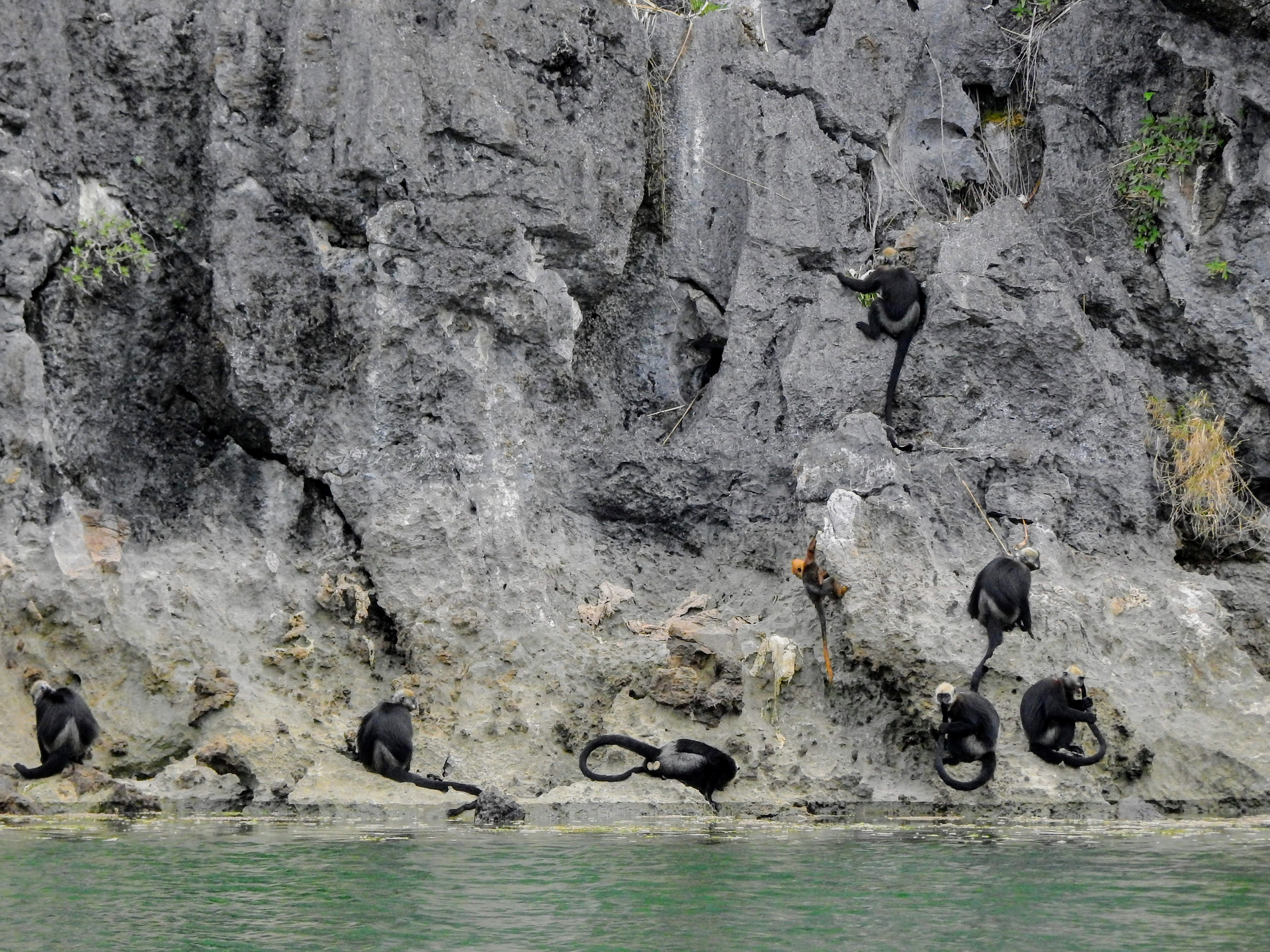
The Cat Ba Langur, which has been recorded in the IUCN Red List, is officially recognized as a highly endangered species.
UNESCO assessed that the primary forest area covering approximately 1,045.2 hectares on Cat Ba Archipelago is one of the crucial factors contributing to the ecological and biological diversity of the nominated site.
Accordingly, the Cat Ba Langur (Trachypithecus poliocephalus) is a rare and highly endangered species, listed in the highest category of endangered species in the IUCN Red List. Only 60 to 70 individuals remaining have been recorded to date. They are exclusively found in Cat Ba Archipelago, with no other known populations in the world.
The sites are also a unique ecological garden, a pristine natural conservation area, complemented by a system of karst limestone mountains, rich caves, and distinctive ecosystems combined with the sounds of the busy human life and the soothing waves, creating magnificent and vibrant landscapes of both nature and human culture.
The official recognition of Cat Ba Archipelago as a World Natural Heritage within Ha Long Bay will further enhance the inherent value of the heritage, as evidenced by the harmony in the landscape, geology, topography, ecosystems, and the diversity of flora and fauna.
Translated by Nguyen Hai Long
![Turning wind and rain into action: [10] Advancing accessible climate services for farmers](https://t.ex-cdn.com/nongnghiepmoitruong.vn/608w/files/linhnhp/2025/06/20/1911-z6704423696987_15fd32ffc26d590d204d520c9dac6786-nongnghiep-161854.jpg)
(VAN) Not only does it help farmers 'avoid droughts and rains,' the development of agricultural climate services also enhances their ability to proactively adapt to a rapidly changing climate.
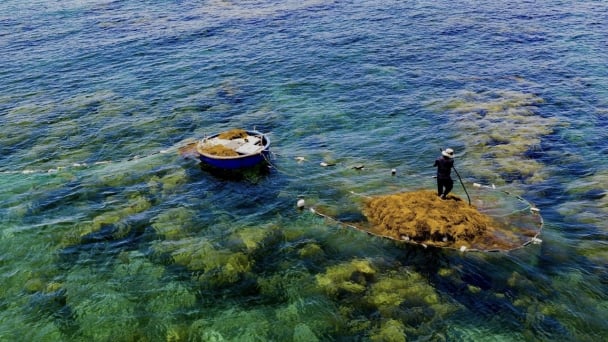
(VAN) With international assistance, the harvesting of sargassum seaweed in Quang Ngai has become increasingly regulated, thereby safeguarding marine life and ensuring the stability of coastal communities' livelihoods.
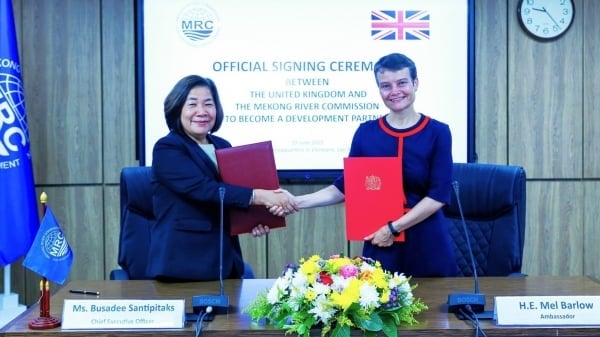
(VAN) On June 19, the United Kingdom officially became a Development Partner of the Mekong River Commission.

(VAN) Biodiversity is being threatened by traditional remedies made from wildlife. Traditional medicine and humans must change to live in harmony with nature.

(VAN) Agrifood investment and finance solutions for people and the planet.

(VAN) Microplastic contamination has become pervasive in seafood, posing unprecedented challenges for food safety and marine ecosystems.
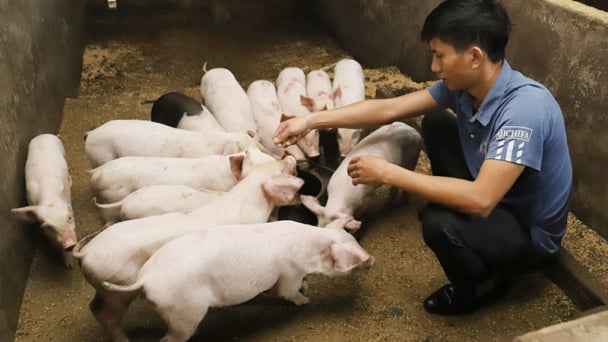
(VAN) Proactively using vaccines, combined with transport control and enhanced surveillance, is the only viable path toward biosecure and sustainable livestock production in Vietnam.